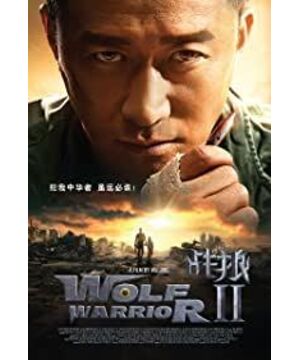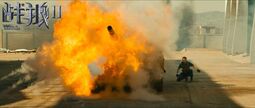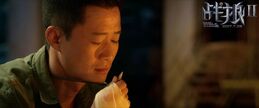At the beginning of the film, it introduces the main line of a frustrated and confused hero who takes revenge as the only goal, followed by the outbreak of civil strife and the main line of the protagonist asking Ying to save people. Although the two lines are connected through the boss fight at the end, it always feels a bit abrupt, such as accidental It is common to bump into each other, and the parallel between the two is not very natural, which is a waste of the foreshadowing at the beginning. In this way, the center is the protagonist's re-search for the kindness and responsibility in his heart. This is also reflected in the tragic portrayal of the refugees in the war (this point can be said to be unconventional and more profound, and the director has also given enough ink in this regard), the emotional lines of the male and female protagonists, and the influence of the son and brother. However, the logic is still flawed. It is deliberately done to satisfy the ups and downs of the plot, giving people endless embarrassment, which I don't think I need to list.
Finally, let's talk about the theme. At this point, the director can say that he has added melody wherever he can. I'm not saying this national pride is a bad thing, it's just that it's so good that when you put it in most contexts people get their heads up and clapping their hands without seeing how it fits into that context. whether it fits. For this kind of heroic theme, you can sprinkle a little as a condiment, but you have to pour it into the audience's mouth, and the audience may enjoy it for a while, but it will be bad if you come down and have diarrhea.
Although it is messy, it is still edible. May the film be the word art in China.
View more about Wolf Warrior 2 reviews











